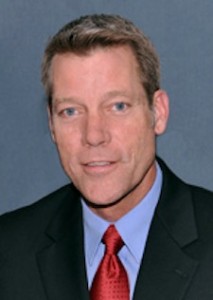Florida public transit political machine tries steamrolling taxpayer advocate

By William Patrick | Florida Watchdog
TALLAHASSEE, Fla. — Norm Roche would be the first to say he’s not the go-along-to-get-along type. It’s a quality voters found appealing when they elected the 40-year Pinellas County resident to the county commission.
But it also has made him a marked man.
THIRD RAIL: Pinellas County Commissioner Norm Roche voted against an expensive public transit project that he says puts taxpayers in a vulnerable position.
In December, Roche voted against a multibillion-dollar taxpayer funded transit project called the Pinellas Greenlight Plan. Shortly after, he was removed from his appointed seat on the Pinellas Suncoast Transit Authority‘s board.
Now, Roche says he’s the target of one of the most powerful public officials in Florida — state Sen. Jack Latvala, sometimes referred to as the Boss Hog of Pinellas County. Latvala’s senate district include northern Pinellas and western Hillsborough counties.
In an interview with Watchdog.org, Roche said at no point was he categorically opposed to investing tax dollars in public transit improvements, a fact he says is lost on many of his critics.
The problem, Roche said, is that the area’s public officials want the project done and are committed to presenting a unified front to the public, even though the Pinellas Greenlight Plan doesn’t make sense to some people.
“I was the lone dissenting vote, but not after I tried to be more pragmatic and more prudent about how we go about this,” Roche said. “It wasn’t just a total rejection.”
Roche contends the transit plan places undue risk on Pinellas’ taxpayers. His concerns range from the project’s 30-year financing plan to the location of the expensive light rail track.
“Six rail lines from St. Petersburg to Clearwater doesn’t make sense,” he said. “People commute to Pinellas north from Pasco County or from Tampa over the (Tampa Bay) bridges.”
“The idea seems to be to build these rail lines and hope we can develop around them. That’s putting the cart in front of the horse,” Roche said.
It’s also expensive. Even without cost overruns, the Pinellas Suncoast Transit Authority estimates the project would weigh in at about $2.5 billion. A combination of federal and state funding is supposed to pay for about 48 percent of the cost. A local sales tax increase would pay for the rest.
Roche considered it a red-flag when he couldn’t get a commitment from anyone in Pinellas County’s state legislative delegation to guarantee the state’s 11-percent share of the financing.
Things got dicier when word came that the federal grants, totaling 37 percent of the project’s cost, could be in question.
“Presently, you have bills sitting in Congress that would basically eliminate federal funding and push it down to the state level. That would be in 2015,” said Roche. “If the state can’t guarantee 11 percent, do you think they’d be willing to jump to 48 percent?”
Pinellas’ public transit system is funded through property taxes. If voters approve a sales tax hike in November — it would make it the highest local sales take in the state — the transit authority would stop collecting the property taxes.
That might sound like good news for property owners, but there’s a catch.
First, the tax transfer, or swap, isn’t equitable.
As Roche explained, “You want to use my car and I would like to use your motorcycle, so we swap,” he told Watchdog.org. “But trading $32 million of property taxes a year for $130 million of sales taxes a year is not a swap.”
Also, eliminating the property tax is not part of the deal. It would simply lay dormant. Written into the Greenlight Plan’s interlocal agreement is the option to impose the property tax later should the county transit authority find it needs more money.
Roche said he attempted to push a half-cent sales tax increase. Then, if the federal and state funding came through the project could go forward. He again was rejected.
“We can take a more prudent approach, but my colleagues are not at all in line with that. They want it as it is,” said Roche, who has in the private sector for 20 years.
“Residents ought to be upset that there aren’t more officials questioning this major investment. I’m asking for commitments to back-up taxpayers and trying not to leave our taxpayers holding the bill,” he said.
Roche admits to not being well adept at the game of politics. Rather than play ball, he speaks his mind. That’s ruffled more than a few feathers in the Pinellas political establishment.
Latvala is reportedly backing state Rep. Ed Hooper against Roche’s November re-election effort. And, Latvala’s Tampa Bay area transit ambitions are well known. He filed a 2012 bill to study the potential consolidation of the Hillsborough and Pinellas transit authorities.
Latvala’s son, Chris, is running for Ed Hooper’s state House seat now that Hooper is term limited out. Latvala’s wife, Susan, has served on the Pinellas County Commission since 2000.
“If you don’t bow to (Jack Latvala) then he’s coming after you, it’s that simple,” Roche said.
“But I won’t bow to the political elites or the editorial powers. I serve the voters who put me in office, and I’m committed to looking out for them,” he said.
Contact William Patrick at wpatrick@watchdog.org or follow Florida Watchdog on Twitter at @watchdogfla Like Watchdog.org? Click HERE to get breaking news alerts in YOUR state!
The post Florida public transit political machine tries steamrolling taxpayer advocate appeared first on Watchdog.org.







